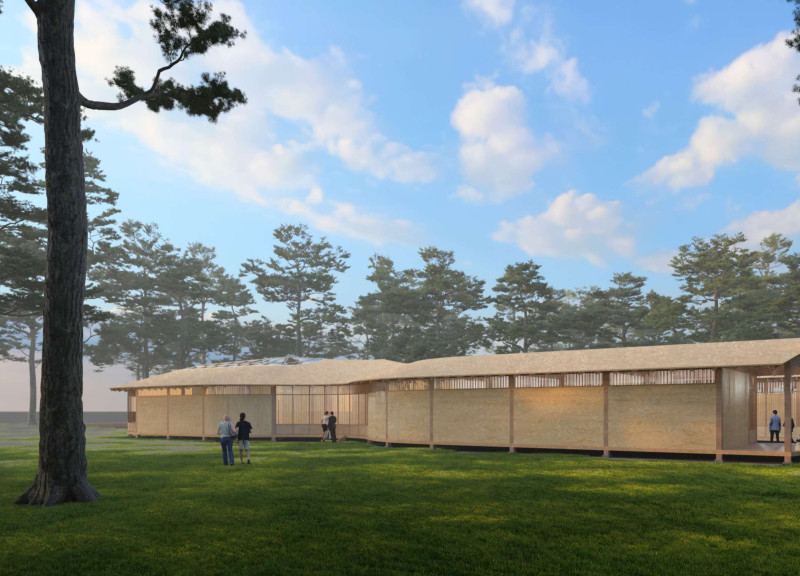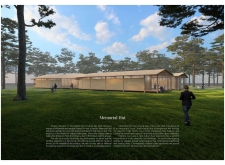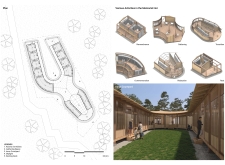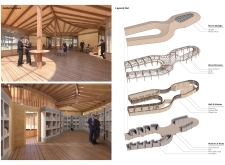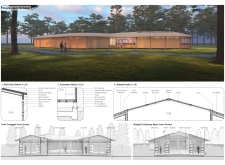5 key facts about this project
The Memorial Hut is located in a forest cemetery in the capital of Latvia. It is designed to honor important figures while providing a space for reflection. The project thoughtfully combines the natural environment with a respectful architectural form. The overall idea focuses on creating a setting that encourages visitors to connect with both nature and memory.
Design and Layout
The layout features distinct areas for remembrance, gathering, and relaxation. Visitors can move through spaces that invite both individual contemplation and shared experiences. The positioning of the structures requires a brief walk from the main entrance, leading people through the forest. This path enhances one's connection to the surroundings and the experience of visiting.
Material Selection
Wood is the primary material used in the Memorial Hut, chosen for its sustainability and connection to nature. This material choice supports ecological principles while enriching the atmosphere of the environment. Using wood allows the building to blend in with the forest and highlights the calming qualities of the site. It also enhances the overall appearance and tactile experience of the interior spaces.
Flexibility and Future Expansion
The design has a modular quality that allows for future adjustments based on changing needs. This versatility is vital for ensuring that the columbarium can accommodate more visitors over time. By planning for growth, the memorial can maintain its purpose while adapting to the community it serves, making it functional and relevant for the long term.
Spatial Relationships
The building's design emphasizes clear transitions between indoor and outdoor spaces. Visitors can easily move around the site, experiencing a connection between the forest and the columbarium. This relationship between the various areas promotes reflection in a setting that is both peaceful and engaging. Gathering spaces encourage interaction while also allowing for quiet moments, fostering a balanced environment that respects both memory and nature.


